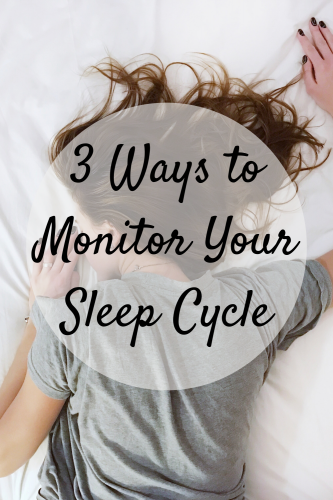
When you get a good night’s rest, you wake up in the morning feeling on top of the world. You jump out of bed, feeling energized and ready to accomplish the day ahead of you. Nothing can bring you down, and it’s all because you got enough sleep that night. Getting proper sleep is important for a multitude of reasons: it helps you stay focused, boosts your mood, and improves your overall health and wellbeing. But getting good sleep isn’t always so easy.
Often we find ourselves laying in bed, staring at the ceiling for hours, unable to fall asleep despite feeling tired. If this is something you’ve been experiencing, you’re probably feeling defeated. Which is exactly why it’s important to monitor your sleep cycle. Monitoring your sleep cycle doesn’t just track how much you slept, but how well you slept. It’s a great way to improve your sleep because you can track your heart rate, bed time, wake up time, and more. Rather than just settling for getting bad sleep and feeling restless, try out these 3 ways to monitor your sleep cycle:
- Use an App
Tracking your sleep is as simple as downloading a sleep monitoring app right onto your phone. It’s convenient, cheap, and effective! There are a myriad of different sleep tracking apps that include various features. With an app, you can track your breathing patterns, REM sleep, how many times you wake up throughout the night, and much more. It is a great way to give you a solid image of just how well you’re actually sleeping. You can then receive personalized advice based on your sleep analysis and continue to track your progress. Trying out other sleep aids like listening to a Non-Sleep Deep Rest (NSDR) track might also help as well!
- Use Your Fitness Tracker
Who said a fitness tracker is just for working out? You can also use your fitness tracker for monitoring your sleep. Most fitness trackers already come with a built-in tool to track your sleep, you just have to remember to put it on before you go to bed. The trackers will monitor and record your heart rate, sleep stages, hours slept, and blood oxygen levels.
- Get a Smart Bed
If you want to go a step above using a device to track your sleep, get a smart bed. A smart bed can sense your movements as you sleep and adjust to your ideal position and temperature. It can boost your sleep quality by tracking biometrics, like your heart rate and breathing.
This analysis can then help to improve your overall sleep quality. You can also use a sleep sensor, which goes either under or over your mattress and tracks movement. The sensor also has heating and cooling features to keep you sleeping comfortably all night long. The benefit of both of these is that the results may be more accurate, considering they are something you are physically sleeping on top of.
Any of these 3 options are effective ways you can monitor your sleep cycle. However, what is most important is that you take your results and actually make an effort to change. You can track your sleep all you want, but if you don’t do anything about it, your sleep isn’t going to change. The results from these are intended to help you improve your sleep quality. Doing something as simple as going to bed earlier or getting off your phone at night might be the answer to all your problems. It will likely take some trial and error before you figure out a technique that works for you, but monitoring your sleep cycle may just help you get the best sleep of your life.





